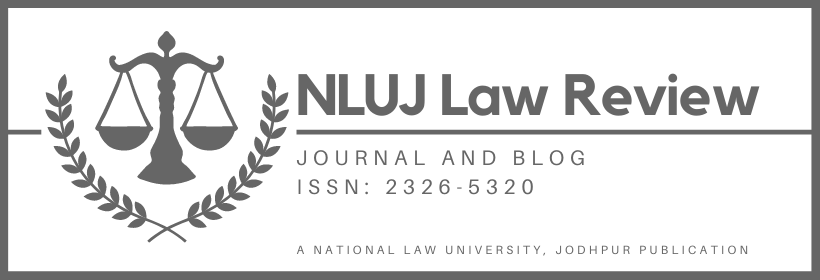Issues on the invocation of guarantees have engendered several amendments and newer regulations in order to harmonise inconsistencies. Adjudicating authorities, appellate tribunals and the courts have decided matters on guarantees of insolvent corporate debtors differently, and even antithetically to previous decisions in some cases of appeal. This has garbled the established understanding of creditors invoking guarantees against corporate debtors. Moreover, there is a substantial lack of clarity regarding the validity of alternate modes to discharge the unmatured financial obligations of insolvent corporate borrowers.
The predominant argument of this blog deals with invoking guarantees as an alternate means to settle unmatured debts. The blog methodically explicates a creditor’s right to repayment from a corporate debtor in Corporate Insolvency Resolution Process (“CIRP”) prior to maturity by way of contingent claims, and accordingly attempts to ascertain the viability and the grounds to invoke a guarantee. The rationale behind every argument and suggestion is maintained by virtue of a legal or judicial reasoning and legislative intent.
Admissibility of Creditors’ Contingent Claims
The legitimacy of a creditor’s claim or contingent claim against an insolvent corporate debtor for unmatured debts fairly substantiates a creditor’s right to invoke a guarantee. The Insolvency and Bankruptcy Code, 2016 (“Code”) has been writ large in its construction of “claim” under Section 3(6). Maintaining a claim does not necessitate or carry any nexus between the commission of a default and the submission of a claim. A creditor can exercise his right to payment or to remedy for matured, unmatured, secured, unsecured, disputed or undisputed debts. In Axis Bank Limited v. Edu Smart Services Private Limited, (“Axis Bank Case”) the National Company Law Appellate Tribunal (“NCLAT”) reversed the earlier decision of the National Company Law Tribunal (“NCLT”) and observed that the commission of a default had nothing to do with the claim [pp.46/53/55/56, Axis Bank Case). Hence, the contractual rights and obligations of a creditor in matters of contingent claims are admissible and the Interim Resolution Professional (“IRP”) is bound to acknowledge and accede to the claim.
Regulation 14 of the Insolvency and Bankruptcy Board of India (Insolvency Resolution Process for Corporate Persons) Regulations, 2016 (“CIRP Regulations”) further elucidates on ascertaining the amount of a contingent claim by the IRP. Furthermore, Regulation 14 read with Regulation 17 under Chapter III of the IBBI (Bankruptcy Process for Personal Guarantors to Corporate Debtors) Regulations, 2019 (“Bankruptcy Regulations”) explicitly acknowledges the submission of “Future Claims” and to determine the amount of such claims. Wherefore, a creditor may file an application for bankruptcy of the personal guarantor and submit future claims in accordance with the Bankruptcy Regulations while concurrently initiating a CIRP of the corporate debtor. Moreover, by applying the principle of Noscitur a Sociis (i.e., to understand an ambiguous word by construing its accompanying words) to the interpretation of Regulation 7(6) of IBBI (Insolvency Resolution Process for Personal Guarantors to Corporate Debtors) Regulations, 2019, the intent of the regulation would also include the submission and verification of contingent claims. Upon perusal of pertinent findings in the Axis Bank Case as well as provisions of the Code and relevant regulations, the comprehension of a claim can be made lucid to affirm the admissibility of contingent claims.
For these reasons, even claims for unmatured debts of an insolvent corporate debtor may be filed to the IRP by means of Form C in accordance with Regulation 8 of the CIRP Regulations. After the submission of all claims and contingent claims by respective creditors, the IRP shall collate and estimate all submitted claims and constitute a Committee of Creditors (“CoC”) in line with Sections 18(1)(b) and 18(1)(c) of the Code respectively. Since voting shares of the CoC are directly proportional to the extent of claims as defined in Section 5(28) of the Code, an uninvoked guarantee would play a key role in modifying the decision-making dynamics due to its relatively sizable amount of dues among other creditors in most cases. This would encourage the existing members of the CoC to pre-empt the admissibility of an uninvoked guarantee. These actions would unjustly prejudice the creditor of the uninvoked guarantee by invalidating the creditor’s claim to exercise a right to payment through the guarantee. Therefore, it is pertinent to protect the creditor’s right to payment by making provisions for contingent claims that concern the future invocation of guarantees subject to stipulated conditions. These potential stipulations are expounded further on in the article.
Conflict of Co-Extensive Roles
In a contract of guarantee, the surety (or “guarantor”) and the corporate debtor are deemed to be independent legal persons who are prima facie bound by the contract. Section 128 of the Indian Contract Act, 1872 (“Contract Act”) states that the principal debtor’s liability is co-extensive to the surety only to the maximum extent of the principal amount unless otherwise stipulated by the contract of guarantee.
The substituted provisions of Sections 60(2) and 60(3) by the 2018’s second amendment of the Code were invoked and dealt with in a recent case, SBI v. Athena Energy Ventures Pvt. Ltd. In this matter, the NCLAT observed the extent of co-extensive roles and decided that two applications for recovery of the same debt amount can be simultaneously filed against the Principal Borrower as well as the Guarantor, while the ensuing apportions and adjustments have to be made only at the time of disbursement. Moreover, the Insolvency Law Committee Report of February 2020 expressly resolves the issues of guarantees which concern the initiation of CIRP and the filing of claims by the creditor against the corporate debtor as well as the guarantor concurrently. Wherefore, in the absence of an agreement to the contrary, a creditor may co-extensively hold the surety liable for a default of the corporate debtor regardless of any action arising out of the corporate debtor’s CIRP.
Despite the establishment of newer regulations, the intricacies of co-extensive moratoriums have prompted erudite arguments. The declaration of a moratorium on the commencement of an Insolvency Resolution Process of the corporate debtor under Section 13 and subject to Section 14(1) of the Code prohibits any legal action against the corporate debtor, its assets, legal rights, security interests in respect of its property or any other action or claim prejudicial to its going concerns. 2018’s second amendment of the Code has effectively clarified the confusion of co-extensive moratoriums to the effect that the CIRP moratorium shall not apply to a surety of a corporate debtor in a contract of guarantee under the amended Section 14(3)(b).
Analysing the Commission of a Default & Surety’s Rights
By now, the admissibility of a contingent or future claim is established and the extent of co-extensive roles are clarified. Henceforth, the blog attempts to substantiate the invocation of such contingent claims that concern guarantees. Upon reading Section 126 of the Contract Act, we can deduce that the creditor’s right to invoke a guarantee and the surety’s obligations would arise forthwith on the failure to furnish payments by the Corporate Debtor. The aforementioned was further emphasised by the High Court of Calcutta in Montosh Kumar v. Central Calcutta Bank. The Court adjudged that the surety’s obligations would come to pass immediately upon the principle debtor’s financial default. Thus, a default would promptly redirect the creditor’s contractual rights and interests to obligate the surety for repayment while concurrently initiating a CIRP of the defaulter.
Hence, for a creditor to invoke a guarantee, the proof of a default or a deemed default would be the most fundamental prerequisite. Irrespective of an Insolvency Resolution Process, a financial default or the invariable inability to furnish payments on the part of the corporate debtor cannot be established until the date of maturity, filing of bankruptcy, or initiating a liquidation process (“LP”). Unless the aforementioned preconditions are well-substantiated, the invocation of a guarantee prior to maturity would be impractical. Anyhow, depending on the facts in unprecedented cases before concerned judicial fora, the non-obstante provision of Section 238 of the Code may be invoked to override provisions of the Contract Act on the commission of defaults to invoke guarantees.
Notwithstanding the aforementioned, the surety’s ‘right of subrogation’ under Section 140 and ‘right to indemnity’ under Section 145 of the Contract Act engenders the surety with all the creditor’s rights against the corporate debtor after discharging the liabilities. This process of subrogation or indemnification streamlines the invocation of a guarantee by granting protection to the surety’s rights to the extent of the liability discharged.
A Critically Analysed Concept
Upon examining a creditor’s right to payment, the invocation of a guarantee for an unmatured debt of a corporate debtor undergoing CIRP can be established as follows:
First, if the date of maturity takes effect within 180 days from the date of commencement of the corporate debtor’s CIRP, the creditor should be able to submit a future or contingent claim for the potential invocation of a guarantee in the event of a default after maturity. Simultaneously, the creditor should also be allowed to submit unmatured claims to the IRP against the corporate debtor before the CIRP. By the same token, if the debt amount is discharged by the guarantor/surety after maturity, the guarantor must be subrogated to the rights of the creditor against the corporate debtor. Hence, the guarantor may be allowed to substitute the creditor in the CoC.
At this juncture, it must be noted that the creditor is only capable of procuring 100% of the debt amount that would include accrued interests, etc. Therefore, in the event of invoking a guarantee against an insolvent guarantor, the creditor should be allowed membership of the CoC of both the CIRPs. However, while the claim against the corporate debtor would be to the extent of the unmatured debt, the claim against the guarantor must be estimated based on a contingency of outstanding debts even after the corporate debtor’s CIRP (“Outstanding Estimate”). Any further extension of the CIRP in accordance with Section 12 of the Code should authorise the invocation of a guarantee within such a period only to the extent of the Outstanding Estimate. This way, the issue of unjust enrichment can be resolved. By virtue of the aforesaid, the meaning and object of the Code and Section 126 of the Contract Act is upheld while also preserving and protecting the rights and interests of creditors.
Second, the outstanding estimate could persist even after the corporate debtor’s CIRP by disparate reasons of mergers, acquisitions, failure of the resolution plan, or merely a change in the management of the corporate debtor.
[A] If the date of maturity is after 180 days, only the submission of unmatured claims against the corporate debtor should be submitted before initiating the corporate debtor’s CIRP. Thus, the creditor can only be a part of the CoC of the corporate debtor’s CIRP. The creditor may claim the estimated outstanding amount, if any, subsequent to the insolvency resolution process by invoking the guarantee after maturity. The guarantor may seek remedy from the corporate debtor severally by exercising a right to indemnity or of subrogation. Besides, if the maturity date takes effect during any further extension of the CIRP in accordance with Section 12 of the Code, the guarantee may be invoked within such period only to the extent of the aforementioned Outstanding Estimate.
[B] Invoking an unmatured guarantee soon after the failure of CIRP but before Liquidation Process (“LP”) would be an inconvenience until maturity. The invocation of a contingent or future guarantee cannot be allowed until the corporate debtor’s inability to pay is established beyond doubt. Notwithstanding the principles of natural justice, an inability to pay is deemed to be a default upon initiation of an LP or bankruptcy order. The corporate debtor’s invariable inability to pay would engender a potential default. Hence, the creditor should be allowed to submit a claim to invoke a guarantee, and the guarantor should exercise the right of subrogation or indemnification to the full extent of the guarantor’s liability immediately after settlement. However, discharging these rights must effectuate before winding-up the corporate debtor. Any delay to invoke a guarantee against the outstanding estimate that could render the guarantor remediless should forthwith terminate the claim to invoke a guarantee.
Conclusion
By allowing a creditor to invoke a guarantee against a corporate debtor in CIRP, the purpose of the Code to subserve and resolve the debtor’s indebtedness as well as to uphold the creditor’s prominence is achieved. In most cases of corporate guarantee, the guarantor is a subsidiary or a parent of the corporate debtor. Authorising the invocation of a corporate guarantee could simplify the resolution process by alleviating the extent of subrogation and indemnification. This could accelerate the resolution process by discounting the aggregate amount of claims.
The Code has been evolving by degrees owing to amendments, regulations and precedents. These piecemeal developments are gradually encompassing and administering contemporary legal issues concerning claims, guarantees, non-obstante provisions, insolvency resolution processes and the role of concerned authorities. Having said that, the issue of guarantees would include all the aforementioned issues in the bargain. In order to streamline the process of invoking a guarantee, the contract must involve contingent clauses that effectively stipulate the creditor’s and surety’s contingent rights and liabilities for unmatured and uninvoked claims. Therefore, the author emphasises the need to establish and administer contingent claims to invoke guarantees against unmatured debts of insolvent corporate debtors as the sine qua non.
This article has been authored by Mr. Athith Pradeep, an advocate practicing at the High Court of Karnataka.



